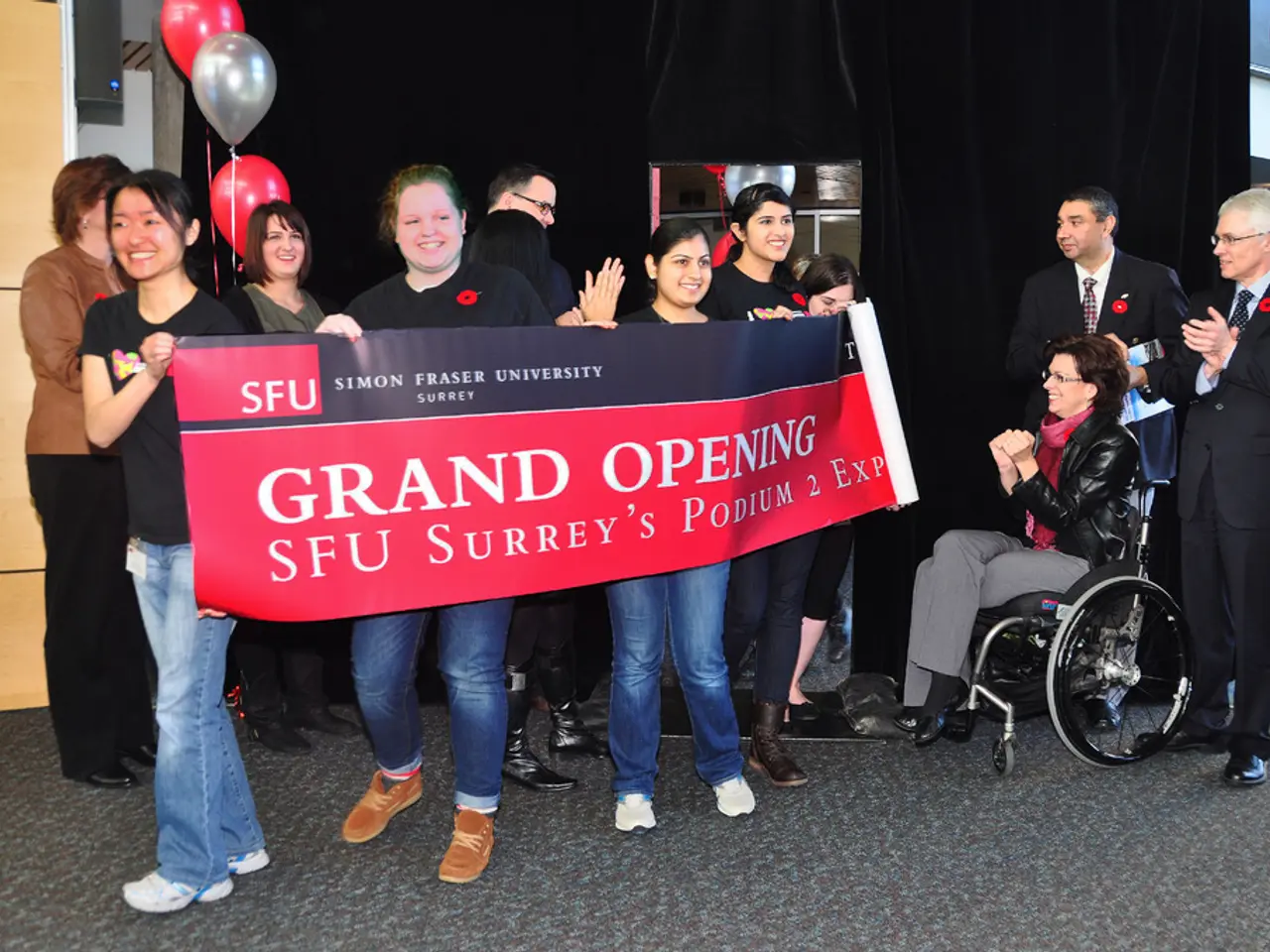Countdown to the Altar: 885 Days of Anticipation for the Nuptials
======================================================================================================================
In a landmark decision, Germany has confirmed the right of couples with disabilities to marry, as demonstrated by the case of Kathrin Pollnow and Klaus-Dieter Rose. The couple, who reside in a small apartment in a house with other people with disabilities, were married on August 9, 2025, in Oschersleben.
The legal process of marrying a couple with disabilities in Germany involves ensuring that both individuals have legal capacity and consent to marry. German law upholds the right of persons with disabilities to marry, provided they are capable of understanding the nature and consequences of marriage, in line with general marriage laws and constitutional protections.
The couple's journey began in March 2023 when they went to the registry office to order the banns, but their request was initially rejected due to lack of business capacity. Months of correspondence followed, including requests for guardianship files, medical records, and expert opinions. A personal hearing by the president of the local court in Magdeburg ultimately led to the decision that the registry office must perform the marriage.
The case of Pollnow and Rose demonstrates Germany’s commitment to supporting the right to marry for couples with disabilities, while providing necessary legal and social accommodations. This may involve judicial review or support in case of limited capacity, but the default presumption favors enabling marriage.
Germany’s Basic Law guarantees the right to marriage equally to all adults, including persons with disabilities. Relevant laws, such as the Federal Act on Equal Opportunities for Persons with Disabilities (BGG) and specific Land regulations, provide protections against discrimination and support for couples with disabilities. These laws ensure that disability is not a barrier to entering marriage but safeguard the autonomy and consent necessary for a valid marriage.
The marriage ceremony took place in a town hall, and "The famous three words" by Andy Borg was played softly. About 50 people, including friends, family, and fellow residents from the facility, attended the wedding. Marziniak, a caregiver, states that the marriage between Pollnow and Rose is not for security, care, or money, but for love.
The state commissioner for people with disabilities in Saxony-Anhalt wrote a letter stating that the United Nations Convention on the Rights of Persons with Disabilities prohibits any form of discrimination. The Federal Association of Lebenshilfe is not aware of a similar case in present-day Germany in which a couple was denied a civil marriage due to a disability.
The implications of this decision are far-reaching, including the recognition of marriage rights for persons with disabilities on equal terms with others, potential legal safeguards to ensure genuine consent and understanding, access to social and legal support services to facilitate the marriage and married life, and no automatic restrictions solely based on disability, reflecting anti-discriminatory policies embedded in federal and regional laws.
In summary, the German legal framework affirms that couples like Kathrin Pollnow and Klaus-Dieter Rose can lawfully marry, with appropriate considerations for their disabilities to uphold their autonomy and rights within marriage.
- The commitment of Germany towards mental health and wellness is evident in their advocacy for the rights of individuals with disabilities to marry, as demonstrated by the case of Kathrin Pollnow and Klaus-Dieter Rose.
- As the marriage of Pollnow and Rose illustrates, relationships and love-and-dating have no barriers in Germany, where equal opportunities are guaranteed to all adults, including those with disabilities, under the Basic Law and relevant legislations such as the Federal Act on Equal Opportunities for Persons with Disabilities (BGG).
- This landmark decision in Germany to support couples with disabilities in marrying not only signifies a significant step forward in promoting health-and-wellness and mental-health but also sets an example for the wider lifestyle approach in ensuring equal rights and opportunities for all.




